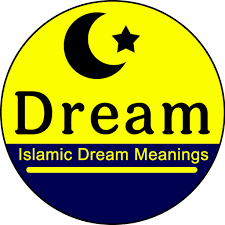Unlock the Meaning of Dreams in Islam

Strong 8k brings an ultra-HD IPTV experience to your living room and your pocket.
🌙 What Do Dreams Mean in Islam?
Dreams are a part of our everyday lives. Some dreams feel emotional, some are strange, and others feel like a message. In Islam, dreams are more than just stories created by the mind—they can hold meaning, lessons, and even spiritual signs. For centuries, Muslims have looked at dreams as something worth understanding.
At Islamic-Dream.com, our goal is to help you understand what your dreams might mean through Islamic knowledge and tradition. Whether you dream every night or just once in a while, this guide will give you the basic understanding you need to explore the world of dreams with wisdom.
🌟 Why Are Dreams Important in Islam?
Dreams are not just imagination. In Islam, dreams can carry meanings connected to faith, emotions, or life situations. The Prophet Muhammad ﷺ gave great importance to dreams. In a well-known hadith, he said:
“True dreams are one of the 46 parts of Prophethood.” (Sahih Hadith)
This means some dreams can carry truth and insight, especially for those who live with sincerity and piety. True dreams may give comfort, offer a warning, or point someone back to the right path. They are not to be ignored, but also not to be overemphasized or treated like fortune-telling.
🛌 The Three Types of Dreams in Islam
Islamic teachings explain that dreams are not all the same. They come from different sources and serve different purposes. There are three main types:
1. True Dreams (Ru’yā Sāliha) – From Allah
These are the dreams that carry meaning, guidance, or spiritual insight. They are usually peaceful, clear, and feel special. True dreams might:
Warn you about something
Give you good news
Show you a symbol that carries deeper meaning
These dreams may stick in your memory and leave you feeling calm or thoughtful. They can come to people who are close to Allah or those who are being reminded to return to Him.
2. Self-Talk Dreams (Hadīth al-Nafs) – From the Mind
These dreams come from your own thoughts, feelings, or experiences. If you are stressed, excited, or thinking a lot about something, it can show up in your dreams. These types of dreams are natural and not considered to have spiritual meaning. For example:
Dreaming about work or school after a long day
Seeing someone you were thinking about all day
Dreaming about eating when you are hungry
These dreams do not need to be interpreted. They are reflections of your inner world.
3. Disturbing Dreams (Hulm) – From Shayṭān
These are the dreams that are confusing, scary, or upsetting. They come from Shayṭān (Satan) and are meant to cause fear, sadness, or doubt. Islam teaches us not to give importance to these dreams. If you see a bad dream:
Say: "A‘ūdhu billāhi min al-shayṭān al-rajīm"
Spit lightly to your left three times
Change your sleeping position
Do not tell anyone about the dream
Disturbing dreams should be forgotten. They are not messages and should not be interpreted.
🔍 The Meaning Behind Symbols in Dreams
In Islamic dream interpretation, symbols can hold different meanings. But the same symbol does not always mean the same thing for every person. It depends on your personal life, emotions, and the context of the dream.
Here are some common symbols and general meanings in Islamic interpretation:
Water: Can represent life, knowledge, or purification. Clean water is usually a good sign.
Snakes: Often represent enemies or hidden danger, but in some cases may represent healing.
Flying: Can mean freedom, spiritual growth, or success.
Mountains: May symbolize challenges, goals, or a strong leader.
Gold: Might represent wealth or hardship, depending on the dream.
Marriage: Can symbolize a union, agreement, or responsibility.
But always remember: interpreting dreams is not about guessing. It requires insight, sincerity, and understanding of Islamic teachings. That’s why it’s best to seek knowledge before interpreting dreams for yourself or others.
🧠 Islamic Etiquette for Dreams
Islam teaches us how to deal with dreams in a proper and respectful way. Here are some important etiquettes:
🐍 Dreaming of Snakes in Islam
Dreams about snakes are common and often misunderstood. In Islamic dream interpretation, a snake usually represents an enemy or a hidden threat. But not every snake dream is the same.
Here’s how to understand it:
A snake attacking you: May represent an open enemy or conflict coming your way.
A snake chasing you: Can show fear, temptation, or a personal struggle.
Killing a snake: Often means overcoming a danger or defeating an enemy.
A calm or talking snake: Might be a hidden enemy acting friendly or deceiving.
But sometimes, a snake can represent healing or transformation, especially if the feeling in the dream was peaceful.
The correct meaning depends on:
How you felt during the dream
What the snake did
Your personal life situation
So don’t jump to fear. Reflect first—and ask Allah for clarity.
✅ If the dream is good:
- Thank Allah for the dream
- Share it only with someone you trust and who is wise
- Reflect on it and think about what lesson it may carry
❌ If the dream is bad:
- Don’t tell anyone about it
- Seek refuge in Allah from Shayṭān
- Change your sleeping side and move on
⚠️ Avoid these mistakes:
- Don’t lie or exaggerate about dreams
- Don’t try to impress others with your dream stories
- Don’t make up meanings without knowledge
The Prophet ﷺ said that lying about a dream is a serious sin. So, always be honest and humble about your dreams.
💍 Dreaming of Marriage in Islam
Dreaming of marriage is another dream many people experience, whether single or married. This dream can have different meanings depending on the details:
Single person dreaming of marriage: May indicate upcoming commitment, life change, or spiritual growth.
Married person dreaming of marrying again: Might symbolize a new responsibility, project, or even increased blessings.
Marrying someone unknown: Could represent connecting to a new part of your life or soul.
Forced marriage or sadness in the dream: May be a sign of fear, pressure, or inner conflict.
Marriage in a dream doesn’t always mean an actual marriage is coming—it may symbolize union, agreement, change, or responsibility in life.
Like all dreams, the meaning depends on your current situation and the emotions you felt in the dream.
🕌 Who Should Interpret Dreams?
Dream interpretation in Islam is a special skill. It is not something everyone should do without understanding. Just like giving religious advice, interpreting dreams should be done by someone who:
- Has knowledge of Islamic teachings
- Understands symbolism
- Is spiritually mature and sincere
- Avoids making up meanings for attention
If you're unsure about your dream, the best approach is to pray, reflect, and ask Allah for clarity. Sometimes, the meaning will become clear with time. Other times, the dream might not need interpretation at all.
🌐 What You’ll Find on Islamic-Dream.com
At Islamic-Dream.com, we are here to guide you through your dream journey with faith and simplicity. We provide:
- Clear explanations of dream types
- Symbol meanings based on Islamic understanding
- Tips on how to approach dreams in daily life
- Insights that help you reflect, not worry
We don’t deal with superstition or false predictions. Our aim is to bring peace, clarity, and spiritual growth through correct knowledge.
Whether your dream is joyful, strange, or worrying, we offer tools to help you understand it the right way—in light of Islam.
🌙 Final Thoughts
Dreams are a part of our connection to the unseen world. Sometimes they are messages. Sometimes they are tests. Other times, they are just part of the mind processing life. But in all cases, dreams should lead us back to reflection, faith, and trust in Allah.
At Islamic-Dream.com, we walk with you on this spiritual journey—helping you understand the unseen with faith, clarity, and purpose.
Note: IndiBlogHub features both user-submitted and editorial content. We do not verify third-party contributions. Read our Disclaimer and Privacy Policyfor details.


